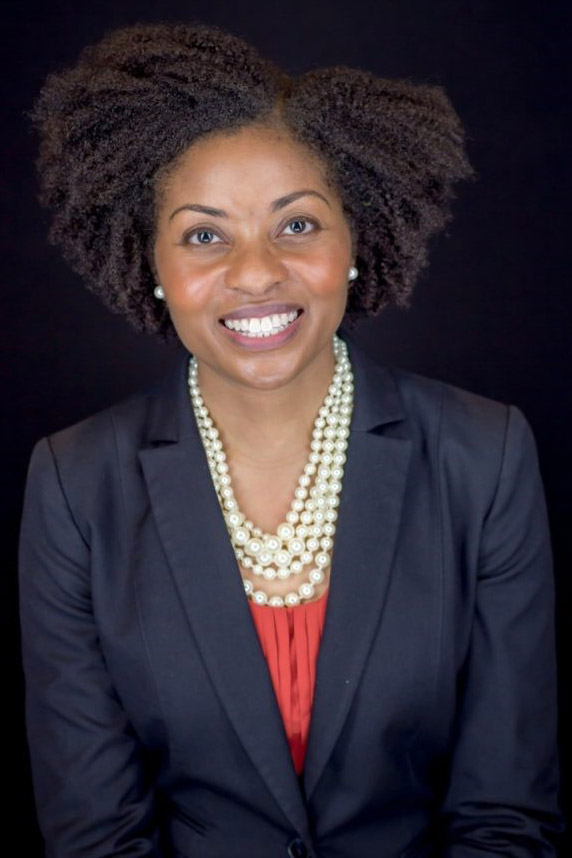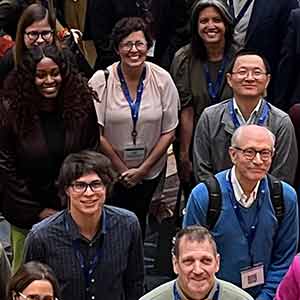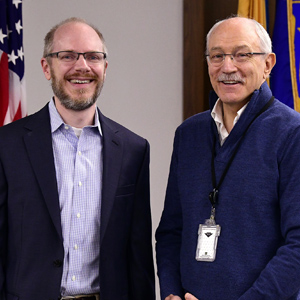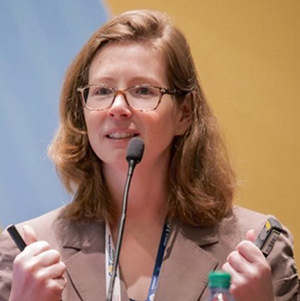
Natasha K. DeJarnett, Ph.D., a two-time NIEHS diversity supplement awardee, joined the White House Council on Environmental Quality last November as Deputy Director for Environmental Justice Data and Evaluation.
As an assistant professor of medicine at the University of Louisville, DeJarnett has researched the intersection of air pollution, environmental health disparities, and cardiovascular disease risk. DeJarnett is also a member of the university’s NIEHS-funded Environmental Health Sciences Core Center.
Environmental Factor reached out to DeJarnett to learn more about how she found her calling, her NIEHS-funded research, and what she hopes to accomplish in her new role.
EF: What motivated you to pursue a career in science?
As a young child, my teachers encouraged me in the sciences. It wasn’t immediately clear to me that I had an aptitude in this space, but I am so grateful for their encouragement because it set me on a path to a career beyond what I could have dreamed. During adolescence, I became highly motivated to pursue a career field that would benefit health.
Upon finding my way into a public health graduate program, I immediately saw the benefits of having majored in biology and chemistry. My science background laid a great foundation for interpreting public health challenges and enhanced my ability to assess risk and toxicity related to environmental exposures. Once I was able to pair the science with observations of disparity and injustice, I found my calling in environmental health sciences.
EF: What was the focus of your research as an NIEHS grant recipient?
I am so grateful to have been a recipient of two NIEHS diversity supplements. I received the first in 2014 as I was completing my postdoctoral training at the University of Louisville. With support from the NIEHS diversity supplement, we found that higher exposure to air pollutants, including acrolein, benzene, and fine particulate matter, was associated with higher risk of cardiovascular disease. We also found that people who lived in closer proximity to major roadways also had higher cardiovascular risk.
I received a second award in 2021 as a supplement to the Green Heart Study, the first controlled trial investigation of the air quality and cardiovascular health benefits of increasing urban tree canopy. The diversity supplement afforded me the opportunity to research how tree planting may affect hyperlocal temperatures as well as environmental health disparities in the Green Heart Study area. More than 8,000 trees were planted in a three-square mile area in South Louisville from 2019 to 2022. We researched the best way to deploy a robust temperature network to determine residential level temperature impacts and the strategic locations for 90 temperature sensors.
EF: What do you hope to accomplish in your new role?
My overarching objective is to advance environmental justice for the protection of public health. My experience in research and using that research to inform policy — in academia, nonprofits, industry, and now the federal government — helps me to understand issues of environmental injustice through multiple lenses.
My first goal in this new role is to support engagement, dissemination, and further development of a tool federal agencies are using to identify disadvantaged communities to ensure that the benefits of certain federal investments reach communities that are overburdened by pollution and historic underinvestment. My second goal focuses on supporting work to track federal agency progress on advancing environmental justice.
EF: What motivates you to do this type of work?
The key driving factor is my family. My family’s experience with environmental injustice is the root of my inspiration to uphold the promise of environmental justice. I have happy memories of family cookouts, birthdays, and holidays in places filled with love and hope, but in an unfortunate juxtaposition, many of these happy memories occurred in areas that are disproportionately burdened with environmental toxins that could affect our health and well-being. I see the faces of my loved ones as I hear concerns about environmental injustice across the United States.
But this work allows me to contribute to upholding the promise of environmental justice, economic justice, and the advancement of health and well-being throughout our nation.
(Lindsay Key is a contract writer for the NIEHS Office of Communications and Public Liaison.)









